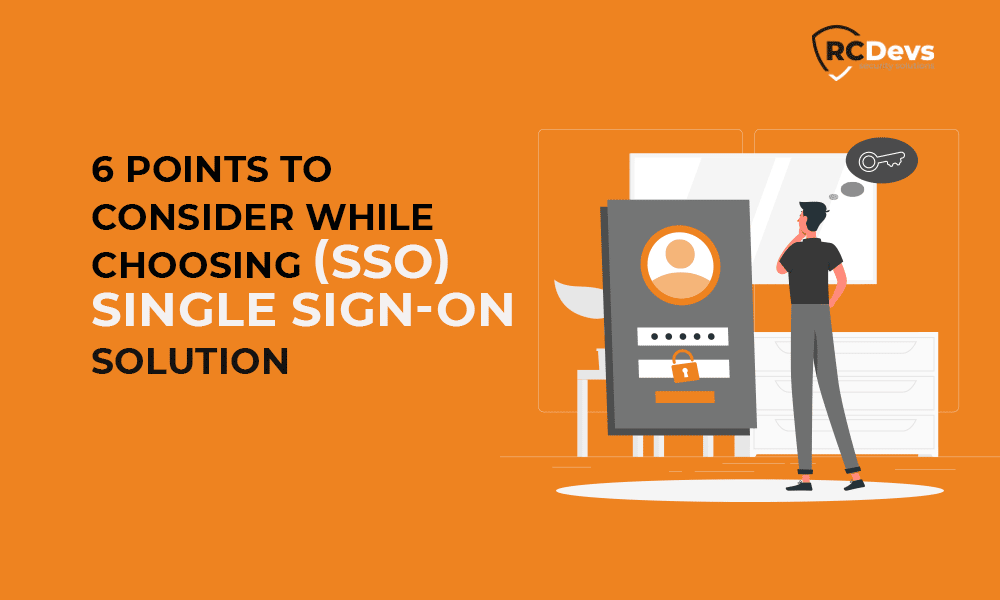
6 points to consider while choosing (SSO) Single Sign-On Solution
6 points to consider while choosing (SSO) Single Sign-On Solution
Single Sign-On (SSO) is an authentication technique that allows a user to log in with a single Id and password for multiple applications and websites.
SSO can be used by enterprises, smaller organizations, and individuals to ease the management of various usernames and passwords. Let us understand how it works, and the key points to consider while choosing a Single Sign-On (SSO) Solution.
How SSO works?
When the end-user tries to connect with the Service Provider i.e. the Client App, it follows the below procedure:
1) User tries to access service provider
2)The SP sends back an HTTP redirect with a SAML request to the IDP through the user’ web browser
3)IDP server presents SSO login page to the user and the user authenticates successfully
4)The IDP send back the SAML assertions to the SP through the user’ web browser
5)SP validates the SAML assertion and signature and allows users to access the app
When the end-user tries to connect with the Identity Provider i.e. SAML protocol, it follows the below procedure:
1) User logs in to IDP
2)user tries to access the application
3)IDP sends SAML assertion and signature to the SP through the user’ web browser
4)SP validates the SAML assertion and signature and allow the user to access the application
Key points to consider while choosing a secure Single Sign-On (SSO) solution
1)Multi-Factor Authentication
SSO can add a second form factor like OTP and mobile-based MFA to authenticate users. With step-up authentication, it can elevate authentication trust at the time you need it most.
2)Unlimited Application Integration
The SSO should have no restriction on the number of integration
3)Two- way initiation (SP and IDP)
The solution should provide both Service Provider and Identity Provider initiation.
4)Client policies per service provider
The SSO should always support different policies per service provider. It is very much helpful if two applications want different policies to integrate.
5)User Management
Providing a centralized location where IT can automatically manage identities, admin credentials, and secure users access, and where users can simply and securely access their apps.
6)Directory Integration
SSO should easily Integrate your existing LDAP/Active Directory to provide users log in using their existing credentials and secure access to applications.
RCDevs in SSO
For Enterprises, federation means Web-based single-sign-on (SSO) over corporate and Cloud applications. With businesses involving more and more Cloud services and distributed applications, a federation is highly demanded. RCDevs’ federation solutions provide enterprise-grade SSO features combined with multi-factor authentication.
| Single dashboard access to applications | Support existing SSO, federation, and identity providers | Customize access policies per-application |
For any details or query contact the RCDevs team of experts.

